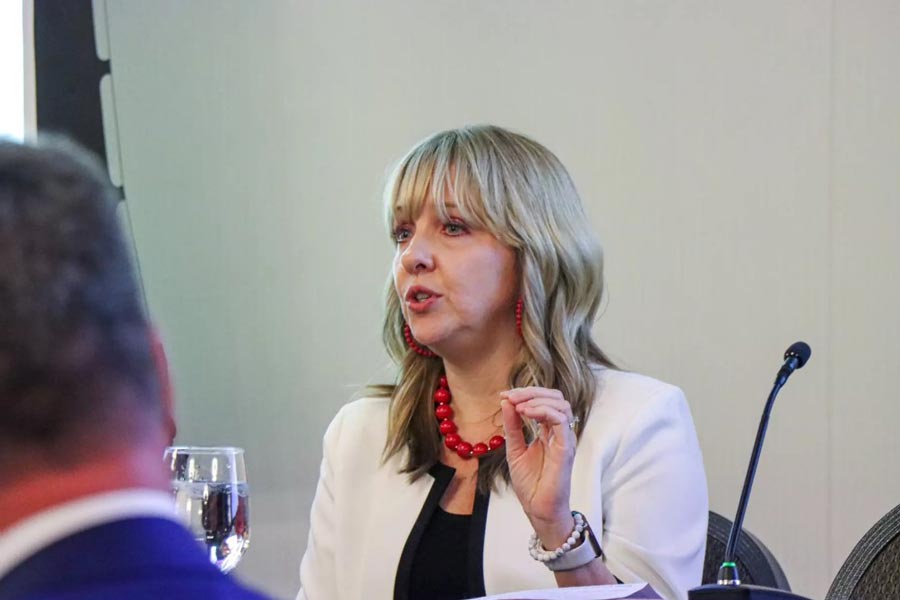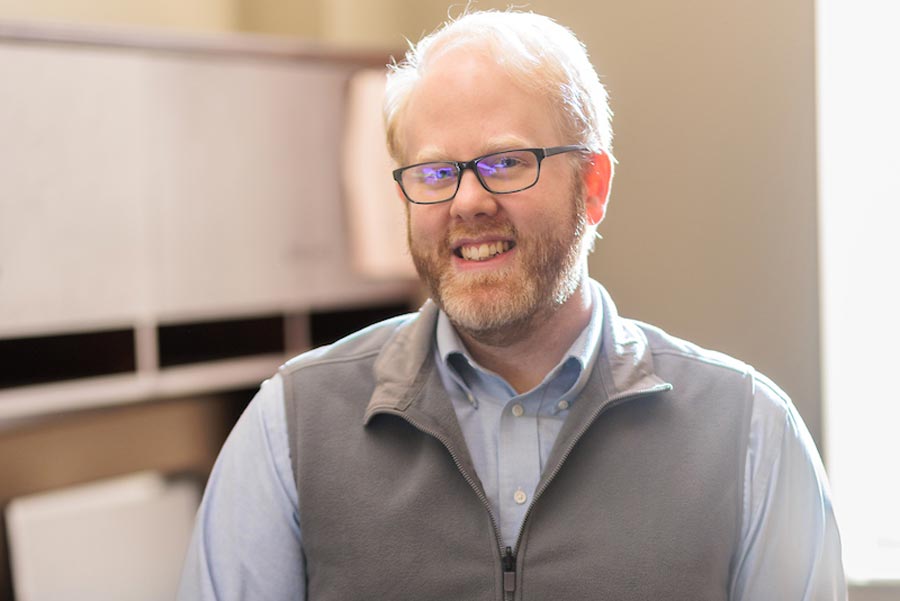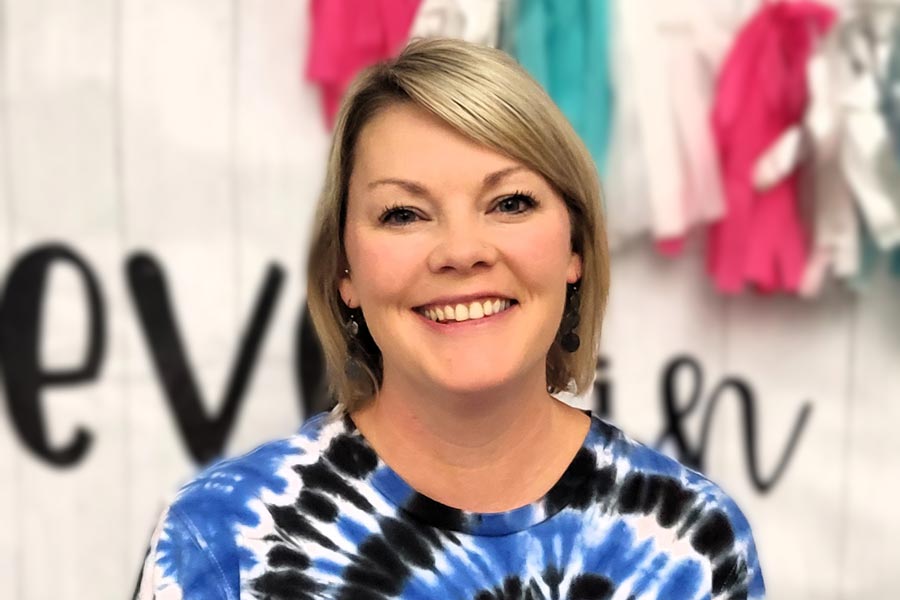
Every other week, our Highlanders are using their education to do extraordinary things. Here, we’ll highlight some notable mentions from local, regional, national and international news media. Whether our students, alumni, faculty and staff are featured as subject matter experts in high-profile stories or simply helping make the world a better place, we’ll feature their stories.
Bank transfer
One of Radford University’s more active supporters recently achieved a significant professional milestone.
Lara Ramsey ’90, M.S. ’92 was promoted to the position of president of National Bankshares, Inc., and its subsidiary, The National Bank of Blacksburg, effective Jan. 1, 2025, according to an announcement released Oct. 18.
As a student at Radford, Ramsey earned dual bachelor’s degrees in psychology and economics, followed by a master’s degree in industrial and organizational psychology, and she now serves on the boards of directors of the Radford University Alumni Association and the Radford University Athletic Foundation.
A native of Lebanon, Virginia, she has been with National Bankshares since 1996, serving most recently as its executive vice president and chief operating officer.
Her husband, Sean Ramsey, is Radford University’s Director of Data Management and Business Intelligence.
Articles about Lara Ramsey’s promotion appeared on Yahoo Finance, in the Bluefield Daily Telegraph, and on Global NewsWire and Stockwatch, among numerous other outlets.
Supply and demand
As technological dependence on semiconductors grows, world events have increasing effects on the production and delivery of those components.
Radford Assistant Professor of Management Zachary Collier is a recognized expert on that topic – he’s authored more than 50 articles and conference papers about the global semiconductor industry, as well as the supply chains that move them – and he recently spoke to two media outlets about how heavy flooding from Hurricane Helene impacted their domestic manufacture.
Storms in North Carolina recently disrupted the mining of quartz, a material necessary for the components’ production.

“Semiconductors are basically the brains of all the electronic devices that we use” to make phones, laptops, cars, airplanes and more, Collier told Radio IQ/WVTF in a report that ran Oct. 22.
While he believes these events are likely temporary disruptions, he sees them as warnings to manufacturers that can help them learn how to be less vulnerable to future disasters.
“Organizations need to be able to have the capability to absorb a disruption and bounce back quickly,” Collier told the station.
He also spoke to WFIR in Roanoke for its Oct. 17 News Express podcast, starting at the 6-minute mark.
“Just last week, some of the operations did resume, and the supply chain is able to absorb some of these disruptions just naturally because companies have inventory in place,” he said, adding: “It serves as an important … warning to the supply chain.”
Earlier this month, Collier also penned an Oct. 3 article that examines “supply chain warfare” and the potential for weaponization within deliveries. As he has in the past, he called again for the United States to increase technological independence in that area.
“While the U.S. only makes 12% of the world’s semiconductors, it consumes around 25%, resulting in an imbalance between supply and demand,” he wrote on the website Supply Chain Brain. “Such an imbalance is problematic.”
Exceeding standards
A Radford graduate with more than two decades’ experience in public school education has been recognized by a state group for her success in teaching at-risk students.

According to an Oct. 2 story by the Virginian Review, Tiffany Gillispie ’04 was touted for her students’ achievements in their Standards of Learning (SOL) test scores for 2023-2024, specifically in the subjects of reading and math.
The acknowledgment comes from the Comprehensive Instructional Program (CIP), a consortium of Virginia public school divisions.
Teachers cited by the CIP had “a minimum of 50% of their students who were identified as economically disadvantaged, and at least 10% of their students were identified as students with disabilities,” according to the Virginian Review. It said SOL tests measure students’ success in meeting the state’s expectations in core subjects.
Gillispie teaches third grade at Jeter-Watson Elementary School in Covington, Virginia, and she has worked within the Covington and Alleghany Highlands public schools systems for the past 21 years.
“Our role as teachers extends far beyond test scores,” Gillispie said. “It’s about fostering a love for learning, instilling confidence and providing support to help students grow academically and personally.”
Art of noise
Painting is a visual medium, but a new exhibition by a Highlander faculty member draws inspiration from sound as well as the experiences of others.

It’s “The Human Experience Project,” a series created by artist and Radford Professor of Philosophy Katy Shepard, now on display in the B. Love Gallery at the Fine Arts Center for the New River Valley in Pulaski.
Shepard has described the large-scale oil mixed media works in the show as “hyper-realistic” visual translations of audio data.
“The core of The Human Experience Project is a series of recordings from individuals sharing a significant moment in their lives,” according to the Fine Arts Center’s website. “Shepard painted each work while listening to the continuous looped recordings, letting the sound and audio quality intuitively guide the brushstrokes.”
The collection, it says, “offers a compelling investigation into empathy shaped by personal perspective,” and it is on display now through Nov. 23.
The Human Experience Project has been written about in The Roanoke Times, the Radford News Journal and New River Valley News.